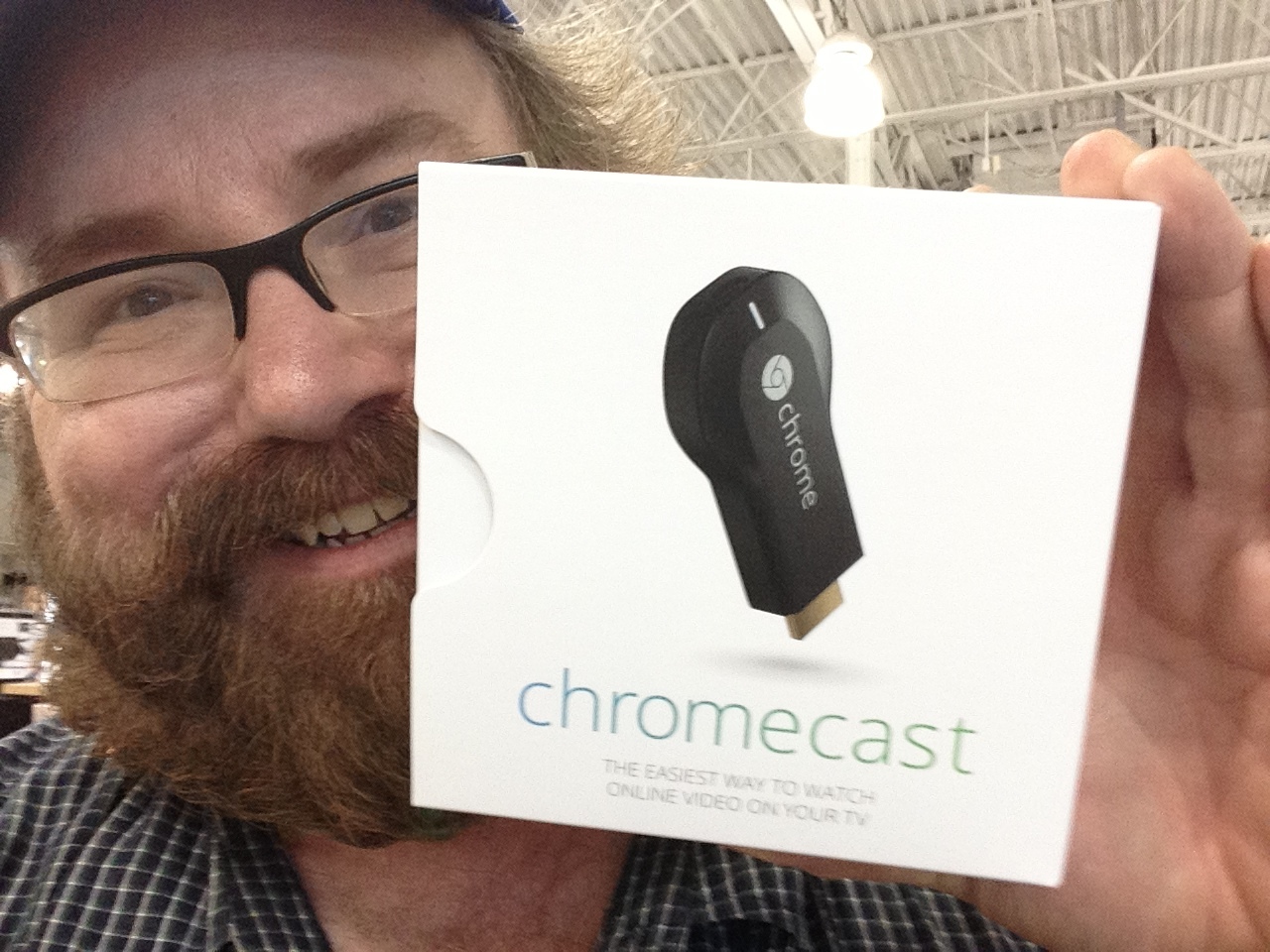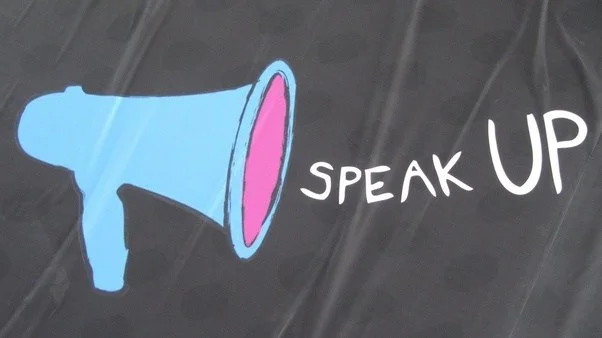Google Home is Google's brand of smart speakers that competes with Amazon's Echo.
What's the power necessary to handle Google Home's compute requirements?
Submit your answers in the comments and receive feedback.

Google Home is Google's brand of smart speakers that competes with Amazon's Echo.
What's the power necessary to handle Google Home's compute requirements?
Submit your answers in the comments and receive feedback.

Let's say you're the product manager for Chromecast. How would you go about to creating a 3 year roadmap for Chromecast?
Submit your answers in the comments and receive feedback.
Photo credit: Mike Mozart
One of the most common questions I get is, "Where I can find your interview preparation spreadsheets?"
So without further ado, here are links to both of my highly coveted spreadsheets:
Best of luck with your interviews,
Lewis C. Lin
Is The Marketing Interview available in electronic book (eBook) format?
The answer is absolutely! You can get the eBook for The Marketing Interview here.
While we're at it, here are the links to eBook versions of my other books, not available on Kindle:
For aspiring marketers, Lewis Lin's The Marketing Interview provides a solid grounding, with concrete examples and exercises, on how to stand out during a marketing interview and land that job of your dreams. — Luanne Calvert, Former Chief Marketing Officer, VIRGIN AMERICA
There’s so much confusion on how to succeed at the marketing interview, especially tough case questions. The Marketing Interview examines the most common and challenging interview questions including developing marketing plans, launching new products and dealing with private label competition. — Philipp von Holtzendorff-Fehling, Former Vice President Marketing, T-MOBILE USA
Lewis Lin presents both classic and new marketing cases, along with right and wrong approaches, to sharpen your interview impact. Useful for new graduates and mid-career professionals, The Marketing Interview contains marketing analogs and role plays to help you elevate yourself above other candidates. —Dan Frechtling, Former Vice President, MATTEL
I have interviewed countless candidates for marketing roles, and I wish more of them could attack problems this smartly. Follow the step-by-step guidance in this book, and you will set yourself apart from other candidates and succeed in your marketing interviews. — Scott Shrum, Former Brand Manager, S.C. JOHNSON & SON
There are several reasons for the poor product names.
Uninspired marketers
There are simply some marketers who didn't care enough about their product to put proper effort into coming up with a good name. I would put Microsoft Family Safety in this category. And it looks like the executive in charge didn't care either.
Opinionated bureaucrats
Sometimes, the influential executives care too much. Decision makers with limited marketing experience start throwing ideas out. And unfortunately they're influential enough to have these bad names stick. That's why you get products with "RT" appended to it. Apparently RT doesn't mean real-time; instead it's much, much geekier. Yes, some engineering VP cried and moaned enough to get their way. Good luck explaining that one to a 55 year old small business owner. (Details: What Does the ‘RT’ In Windows RT Stand For?)
Indecisive and weak marketing leaders
The role of a strong marketing leader is to clarify the brand strategy & hierarchy. For example, P&G's leadership team made a conscious decision to have strong product names (e.g. Tide, Swiffer, Pampers). They opted out of using the corporate brand as an umbrella brand. In other words, it's not "P&G Tide" or "Procter and Gamble's Pampers." At Microsoft, there's no clarity around the brand strategy. Sometimes Microsoft is the umbrella brand e.g. "Microsoft Office." Other times, the umbrella brand is left out such as "Xbox" or "Bing." At other times, Microsoft uses multiple umbrella brands such as "Microsoft Windows Live Hotmail Premium." Microsoft has no shortage of run-on product names -- and it's largely because of indecision.
Last night, I came across Robert Kaplan's seven questions that senior leaders should ask themselves periodically. I thought it was too good not to share, so I've included it here.





Here's how I evaluate initiative in an interview:
I'd ask, "Tell me a time when you took initiative." or "Tell me a time you volunteered for a project that everyone else thought was dull or boring."
Most candidates would give an example of a task their boss or some other person asked them to do. This is not initiative. It requires some careful listening and follow-up questions to determine whether or not the candidate was truly proactive.
I would also ask, "Tell me a time when you were given a project without guidance. How did you figure out what to do?"
Here I would evaluate how thorough they assessed different options before deciding on a course of action. If there was only 1-2 options that may not indicative of a truly independent individual.
Before the interview, I'd tell the candidate to do some pre-interview homework. For instance, "Re-design our website and bring mock-ups to the interview." or "Take a look at the Google Maps API, and hack together a mobile app."
Based on their effort, you can evaluate their initiative.
The truly proactive ones would likely do this anyway without prompting. ;)
Estimate the number of daily emails sent in the US.
Submit your answers in the comments and receive feedback.
Estimate the market size for your newly proposed Chromecast feature.
Submit your answers in the comments and receive feedback.
Estimate storage for Google Maps.
Submit your answers in the comments and receive feedback.
I was flipping through HBR's On Communication book last night, and I found this great summary on the unintended consequences (from the listener end) when:


You are going to make a Wi-Fi connected speaker with voice capabilities. How do you make that?
Submit your answers in the comments and receive feedback.
I'm happy to announce more kudos for my latest book, The Product Manager Interview.
This time, a reader used it to get a job offer at Microsoft as a Program Manager. Woo hoo!
Conquer those interviews,
Lewis C. Lin



Recently, I was asked:
Why isn't it appropriate for an interviewee to be represented by a negotiation expert like companies do for salary talks?
You're absolutely right. It is unfair to the employee to NOT get professional representation.
Negotiation is not as easy as it seems. In 2016, one NFL player decided that it was "easy to negotiate" and tried to represent himself. The deal he self-negotiated was widely panned as one of the worst labor contracts ever:
“I think the Russell Okung contract might be the biggest debacle of a contract I have ever seen. Okung, who at this stage of his career is somewhere between the 10th and 15th-best left tackle in football, eschewed an agent, decided to negotiate his own contract, and signed with Denver for a non-guaranteed $5 million for 2016. … For a player of his stature, it’s a ridiculous contract.”
- Peter King, Sports Illustrated, March 20, 2016

On the other side, most recruiters are TOUGH negotiators. They absolutely DESTROY candidates. It's not so much that recruiters are the Navy Seals of negotiation. That is, most recruiters haven't had extensive negotiation training and their tactical (negotiation) moves are only a slight cut above the average person's.
It's more because recruiters have two MASSIVE innate (not trained) advantages that candidates don't:
For professional athletes, actors, and singers, it's appropriate for them to have representation at salary talks because it's the norm.
For executive-level compensation or organized labor, professional representation is also the norm.
But for standard employee-to-employer negotiations, professional representation is not appropriate only because it's not commonplace. During the offer discussion stage, if you told a recruiter to "talk to my agent," they'll either mock you, get scared, or both. If you want a good negotiation outcome, last thing you want is to deal with another party that either despises you or is afraid of you.
But as Bobby Arora puts it, you can create a "synthetic situation" where you can have a simulated professional agent representing you. I'll call it a "shadow negotiator."
It would be exactly as Bobby puts it. You relay the compensation information you're hearing from the recruiter, and the shadow negotiator (behind the scenes) tells you what to say and do. Thanks to the digital age, negotiation via email is becoming more commonplace, so it'll be even easier to relay information to your shadow negotiator.
My favorite job interview question right now, credited to Peter Thiel is:
What's the one thing that you believe to be true, but nobody else agrees with you?
I find this question fascinating because:
Recently I was asked:
How important it is for a product manager to project his or her voice at work in tech companies such as Google, Facebook, and Amazon?

Yes, you have to project your voice as a product manager. Here’s why:
If you’re not comfortable projecting your voice, try the following:
How does Alexa or a Google Home device communicate with the cloud?
Submit your answers in the comments and receive feedback.
What do you like (or not like) about our products?
Submit your answers in the comments and receive feedback.
My day-to-day breakdown as PM: